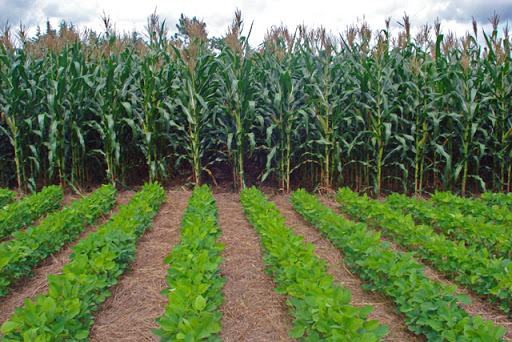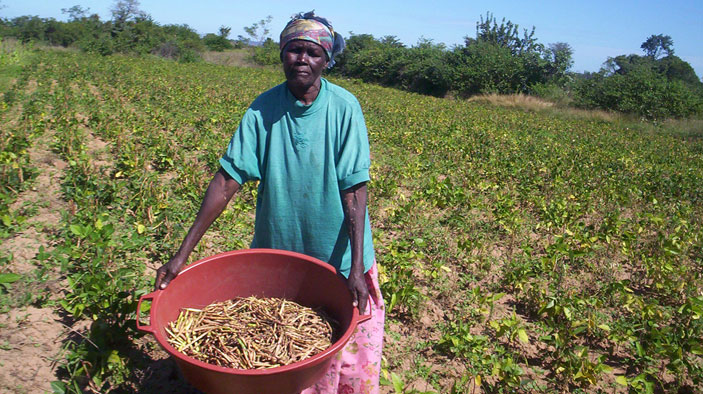UNDP Pledges Support to Zimbabwe’s Agricultural Sector for Inclusive Growth
United Nations Development Programme (UNDP)’s Resident Representative, Dr Ayodele Odusola, has announced the organisation’s commitment to support Zimbabwe’s agricultural sector to achieve inclusive growth and development.
Speaking at a Africa Symposium held recently at Zimbabwe International Trade Fair, Dr. Odusola, on behalf of the United Nations Development System, emphasised the importance of promoting transformative initiatives for agricultural transformation, inclusive development, and growth in Zimbabwe and Africa, stating that investing in innovative ideas can unlock Africa’s potential for sustainable development.
Dr Odusola said, “On behalf of the United Nations Development System including UNDP, we’re here to help you to promote and advocate those transformative initiatives that will help to shape the dynamics, the direction of agricultural transformation, for Inclusive Development, and for inclusive growth in Zimbabwe, and the rest of Africa.”

Thriving Africa
“The UNDP is committed to fostering an enabling environment for innovation to thrive in Africa,” Dr Odusola declared.
He added, “We believe that by investing in innovative ideas and empowering the continent’s brightest minds, we can unlock Africa’s true potential and drive sustainable development that leaves no one behind.”
Dr Odusola emphasised the need for a holistic approach that addresses post-harvest losses and promotes value chain development, agro-processing, and digitised farming. He also stressed the importance of involving smallholder farmers in the formulation of agricultural policies and programs.

Post-Harvest Losses
Highlighting the critical issue of post-harvest losses, Dr Odusola stated that 5% of crops produced within the first eight activities got damaged before reaching the market due to inadequate measures. He emphasised the need for a fully integrated and value chain development approach, as without this, the agriculture sector would not achieve its maximum potential in promoting inclusive growth and development. Dr Odusola reiterated that relying solely on exporting primary commodities could result in job and wealth loss for Africa.
Drawing lessons from successful agricultural transformations in Ghana, Ethiopia, Morocco, Mauritius, Malawi, China, India, Taiwan, South Korea, Brazil, and Costa Rica, Dr Odusola highlighted some key strategies that should be implemented in Zimbabwe and other African countries.
He emphasised the need for policies that simultaneously promote poverty reduction and address income inequality. Effective social protection policies and progressive taxation initiatives were identified as critical tools for narrowing the gap between the highly educated elite class and the non-educated population.
Strong Ecosystem
Furthermore, Dr Odusola stressed the importance of a strong ecosystem approach to transform agriculture. He emphasised the need for alliances and partnerships among policymakers, the private sector, research institutions, and farming communities. Such collaborations would drive the shifting of development frontiers and enable agriculture to play a pivotal role in Africa’s overall progress.
UNDP’s resident Representative concluded by urging Africa to seize the opportunity to leverage agriculture for inclusive growth. He emphasised the importance of transforming smallholder farmers into climate-resilient market participants, creating commercial opportunities. Moreover, Dr Odusola called on the global community to support the market access of African agricultural products, as well as fulfil the commitment made in 2015 to halt counterproductive subsidies that hinder African products’ competitiveness.
In response to these challenges, the UNDP pledged its support to Zimbabwe’s agricultural sector. The organisation expressed its readiness to promote and advocate transformative initiatives that would shape the direction of agricultural development in the country and the rest of Africa. The UNDP also emphasised the need for increased development assistance allocated towards agricultural transformation, with Zimbabwe being encouraged to allocate at least 10% of its annual budget to finance agricultural initiatives.
Zimbabwe’s Agriculture
The UNDP’s commitment to supporting Zimbabwe’s agriculture sector is poised to have a significant impact on the country’s inclusive growth and development. With its expertise and resources, the organisation is expected to play a vital role in driving sustainable agricultural practices, reducing post-harvest losses, and empowering smallholder farmers in Zimbabwe.
In conclusion, the UNDP’s support signifies a collective effort to transform Zimbabwe’s agriculture into a key driver of inclusive development and economic growth. As the nation embraces these transformative initiatives, stakeholders and partners are encouraged to collaborate and ensure the effective implementation of strategies that will shape the dynamics and future of Zimbabwe’s agricultural sector.
#News in Bulawayo #News in Zimbabwe Artist Arts BCC Bulawayo Bulawayo City Council Bulawayo Drugs Bulawayo economy Bulawayo industry Bulawayo news Bulawayo Police Bulawayo Water Bulawayo Water Crisis Bulawayo Women entrepreneurship Business Women Community Culture Currency Drug Abuse Drugs Economy Farmer Farmers Farming Informal Sector Informal Traders MSMEs Music News in Bulawayo News in Zimbabwe Police Police in Bulawayo Vendor Vendors water Water Crisis Water Shortage water supply issue Women entrepreneurship ZESA Zimbabwean economy Zimbabwe news Zimbabwe water crisis ZITF ZRP
Join us for all News in Bulawayo and Bulawayo News in Zimbabwe.









